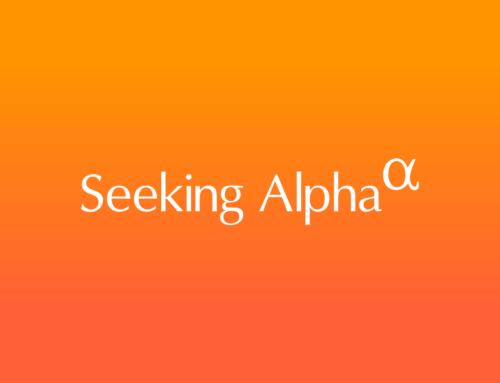When journalist and author Talia Lavin first searched online for her new book, Wild Faith: How the Christian Right Is Taking Over America, she expected to find the normal things that accompany a book the week of its release: a preorder link, the odd list, and maybe a review or two. But instead, she found at least five complete rip offs of her work on shopping retailer giant Amazon — almost all of them seemingly created with the help of generative AI.
“The book is a history of the last 50 years of the Christian right with a particular focus on family dynamics and child abuse in evangelical communities,” Lavin tells Rolling Stone. “All of the [fakes] used the phrase wild faith but some were biographies. One was an inspirational self help book which I found darkly funny. It was surreal.” The books had titles like Talia Lavin Prosopography: You Need to Have a Wild Faith to Succeed, and, Talia Lavin Biography: Why You Need Wild Faith to Succeed and Tania Lavin Biography: The Wild Faith to Take Over America — all of which had titles and paragraphs similar to her work but full of spelling, factual, and grammatical errors.
This isn’t an isolated incident. What Lavin accidentally stumbled onto is one of the most pervasive problems in online bookselling today. Amazon has become the leading self-publishing platform with Kindle Direct Publishing (KDP), software that allows an user to upload their manuscript and create purchasable e-books and paperbacks. According to Amazon marketing material, the platform is a way for authors to gain control over their work’s “content, design, price, audience, and advertising,” all helpful tools to sell a book without a traditional publisher. But while independent authors have used KDP to create digital publishing empires, a much larger problem has emerged: AI generated knockoff books. Published authors say that these fakes are frustrating and almost impossible to stop. But as the practice thrives online, authors tell Rolling Stone it’s not just the small loss of money that makes them frustrated. It’s the fact that the flood of fake books is making book selling — and the internet — worse for everyone else.
“The problem with these slop books isn’t just that they are diverting revenue that should be in the pockets of writers who wrote books. The problem is that they’re deceiving buyers,” says Cory Doctorow, author of Enshittification: Why Everything Suddenly Got Worse and What to Do About It. “These are garbage books that exist to suck up money from the inattentive and get away with ripping off readers as well as writers.”
The current problem of AI knockoff books seems to have originated from the online KDP side hustle community. A quick search on TikTok shows close to 90,000 videos and tutorials on how to make passive income on KDP with constant AI publishing. These creators — many of whom sell their own workbooks and classes on how to game the KDP system — take public domain classic literature and use AI to add summaries and discussion questions before relisting them on the site with a new cover. Many also use AI to design and publish easy versions of books like children’s books, coloring sheets, or cookbooks. But AI knockoff books on Amazon take this instinct and move it a step further, not just using public domain books but making AI versions of new books that have just been released — ones that more people will be likely to search for.
AI knockoff books operate in a legal grey area in order to get around obvious copyright issues. U.S. Copyright law covers “specific creative expression” for authors the moment they write their literary works down — a protection that is then registered in the U.S. Copyright Office during traditional publication. But the law also allows for fair use of copyrighted material for things like commentary or education. This means workbooks about the themes of a famous piece of classic literature, or perhaps a study guide on the influences of a particular author. AI knockoffs often reuse the main title of the book they’re ripping off so people might believe they’re buying the real thing, but closer inspection of the listings show that many are filed as biographies, workbooks, or summaries — which imply fair use. When reached for comment by Rolling Stone, a spokesperson for Amazon said that site has content guidelines that limit what books are allowed and remove books that violate guidelines or copyright. “We invest significant time and resources to ensure our guidelines are followed, and when we identify titles that don’t comply with those guidelines, we take immediate action such as removing non-compliant books or infringing content and suspending publisher accounts to prevent repeated abuse,” they wrote.
But some authors tell Rolling Stone the vetting process isn’t strong enough to keep knockoffs from popping up — and many times puts the burden of policing these infractions on the author. When Seth Harp, author of The Fort Bragg Cartel: Drug Trafficking and Murder in the Special Forces, first realized that people were selling AI knockoffs of his book on Amazon, he immediately reported the AI spoofs to the company. But he tells Rolling Stone that the process ended up being “completely ineffective.” Every time he reported a fake and it was removed, another one popped up in its place.
“My frustration is that this piracy isn’t being done as a marginal thing,” Harp says. “This is coming from the most well connected and elite sector of our economy. It’s just crazy to me to see this engine for intellectual property theft that is totally indefensible taking place with the full cooperation of Amazon.” (Amazon, for its part, insists it is trying to tackle the issue as it develops: “Our process and content guidelines will keep evolving as we see changes in AI-driven publishing to make sure we provide the best possible experience for customers and authors,” the spokesperson tells Rolling Stone.)
Lavin bought hard copies of the AI knockoffs of her book, and wasn’t surprised to find that each was useless in its own way. Some of them were incredibly short and seemingly taken directly from her Wikipedia page as a sort of biography of her, combining public summaries or her book and available chapters like they were about her life. Others were full of incorrect information, like identifying her as a school teacher. One was her book, but read like it had been translated into another language and then translated back to English. For Lavin, the experience had her waffling between amusement and frustration. But it also made her concerned about the systems that allowed the knockoffs to be made so easily.
“Undoubtedly, I had a sense of violation. I worked for three fucking years on this book. I talked to 100 plus people about the worst child abuse they’d ever experienced in their lives,” she says. “ You spent 20 minutes plugging prompts in and now you’re gonna make money, because when you search Wild Faith, all of these come up.”
Doctorow, the author of Enshittification, has AI knockoffs of his own book on Amazon. It’s an ironic situation — especially considering he’s best known for popularizing the descriptor of how things online are getting worse and harder for the average person to use. Doctorow tells Rolling Stone that he believes the proliferation of AI knockoffs are a direct result of Amazon not investing in content moderation, and a perfect example of enshittification in action.
“That’s the process by which you see enshittification taking place,” he says. “It’s a theory about what happens when a business no longer has to worry about consequences for being terrible.”
Each of the authors who spoke to Rolling Stone say Amazon has a clear responsibility to invest in more software and moderation that prevents AI scam books like these from screwing over readers and authors. As it stands, they feel like AI knockoffs might become just an understood occupational hazard for people who want to share their writing with others. It doesn’t change the work they did on their books. But it does make the online world harder to navigate.
“It’s quietly violent. You’re stealing my work, my face. You’re stealing my life and writing lies about it,” Lavin says. “On an individual level, it’s not like I’m some avenging Joan of Arc against a great humiliation. But taken in aggregate, this is the biggest book marketplace in the world. And look how easily it’s distorted in this way.”



